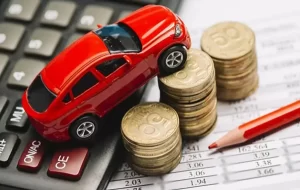If you are an individual who is paid and thinks the provisions of “Facial Tax” do not apply to you, you are wrong. Facial tax responsibility can arise for someone who has a salary as a main source of income, but also has income from other sources such as interest from deposits, rental income, capital gains and so on. Let’s look at how you can judge your face tax obligations.
What is tax payment in advance?
Facial tax payment is the process of paying taxes before the end of the financial year, for the income you earn in the same year. Income tax assessors need to estimate their income, calculate income tax obligations, and pay taxes in four installments during the financial year.
When will the down payment tax due?
Any person who is estimated to be a tax obligation for the financial year is RS 10,000 or more, after considering the tax that is deducted and collected at the source (TDS and TCS), is required to pay the advance tax.
In accordance with section 208 of the Income Tax Law, individuals who have an estimated tax obligation of RS 10,000 or more in one financial year are responsible for paying down payment taxes. Senior citizens who are more than 60 years old are freed from this tax obligation, as long as they do not have income from business and professions, “said Deepak Jain, Chief Executive, Taxmanager.in.
How is the down payment tax paid?
Taxpayers are required to pay the estimated annual face tax obligations in four installments 15 percent, 45 percent, 75 percent and 100 percent, on or before June 15, September 15, December 15 and March 15, respectively. This effectively means that they pay as they produce. At the same time, the system ensures that the flow of income tax is stable to the Minister of Finance.






